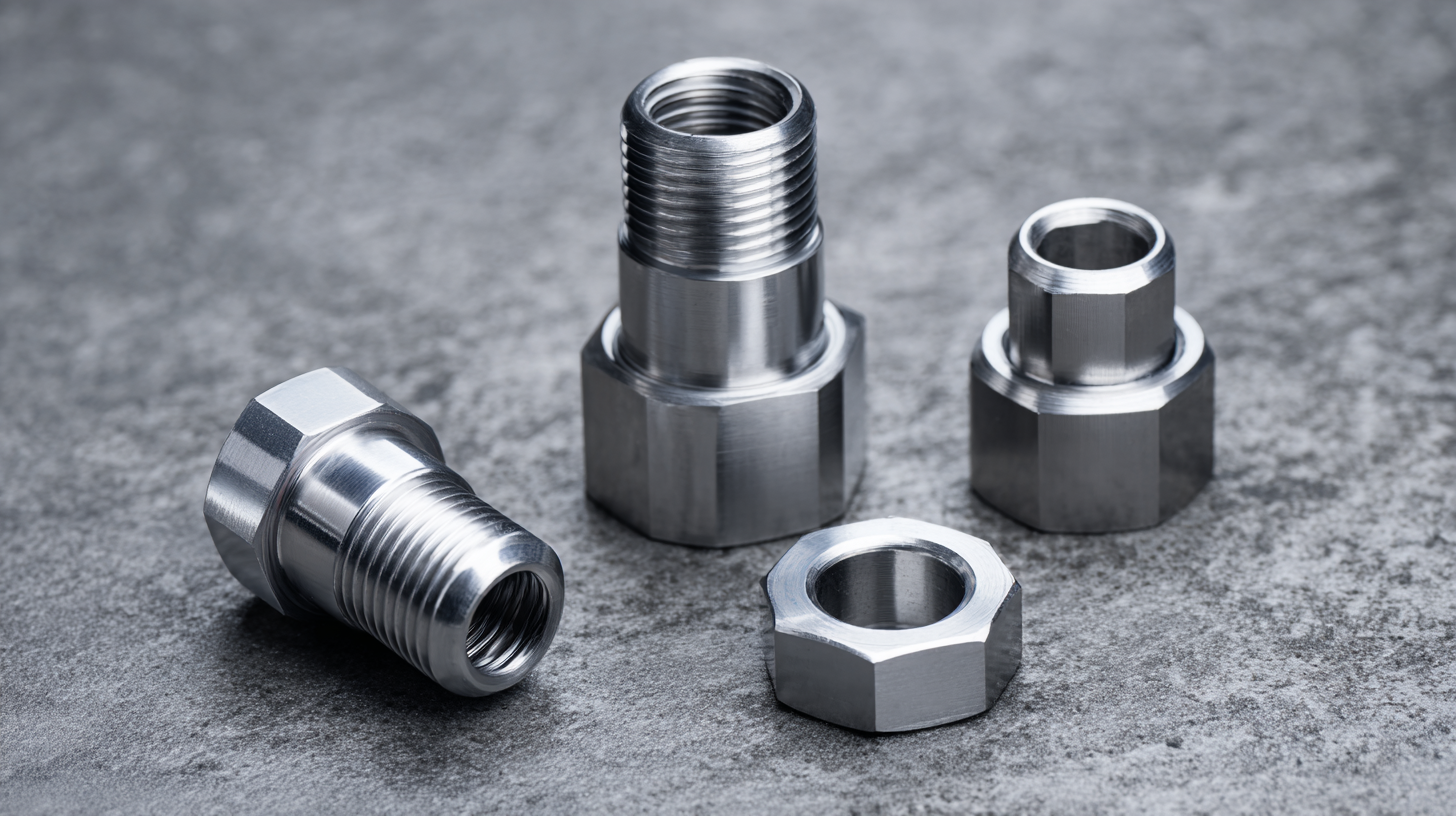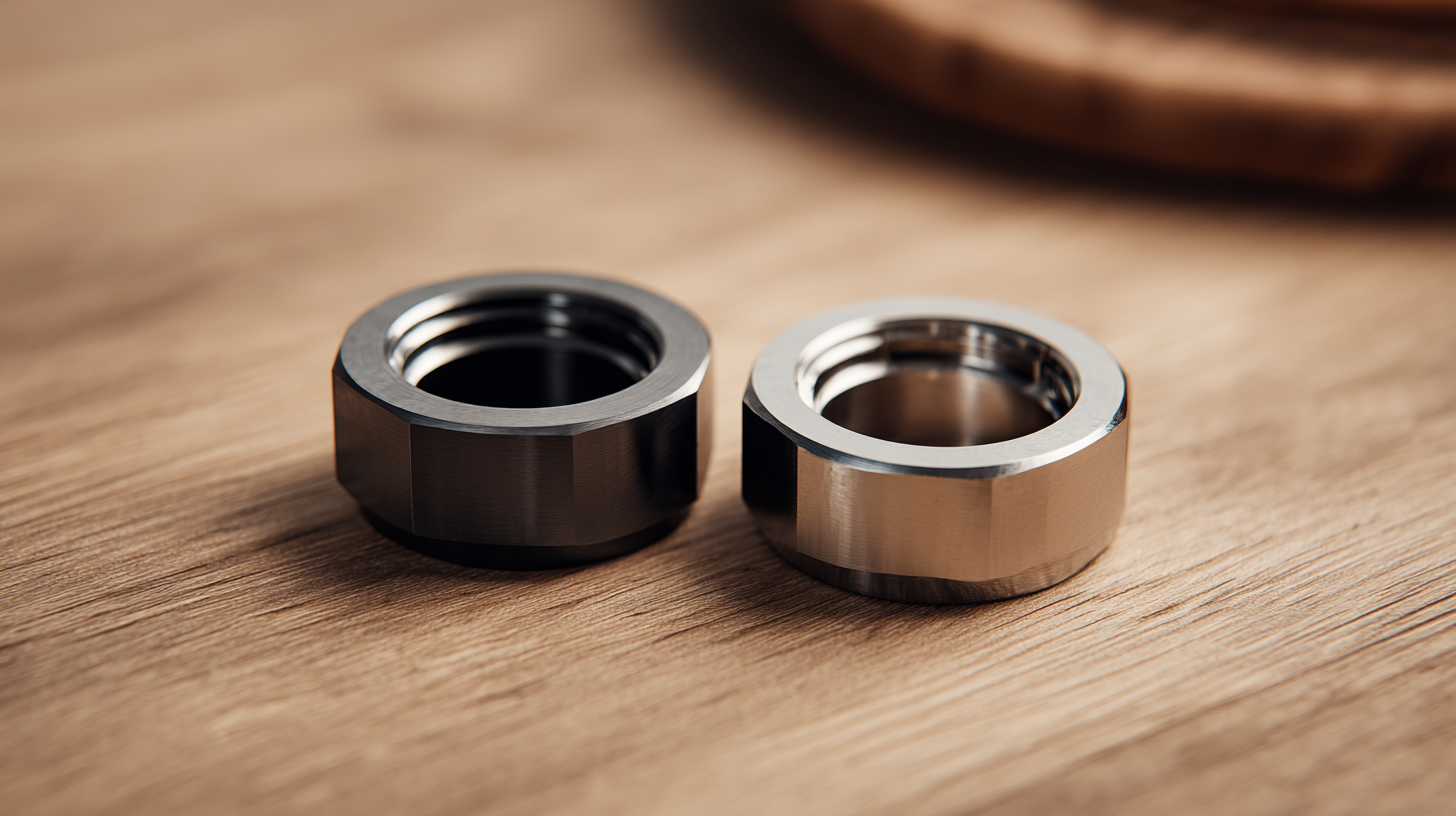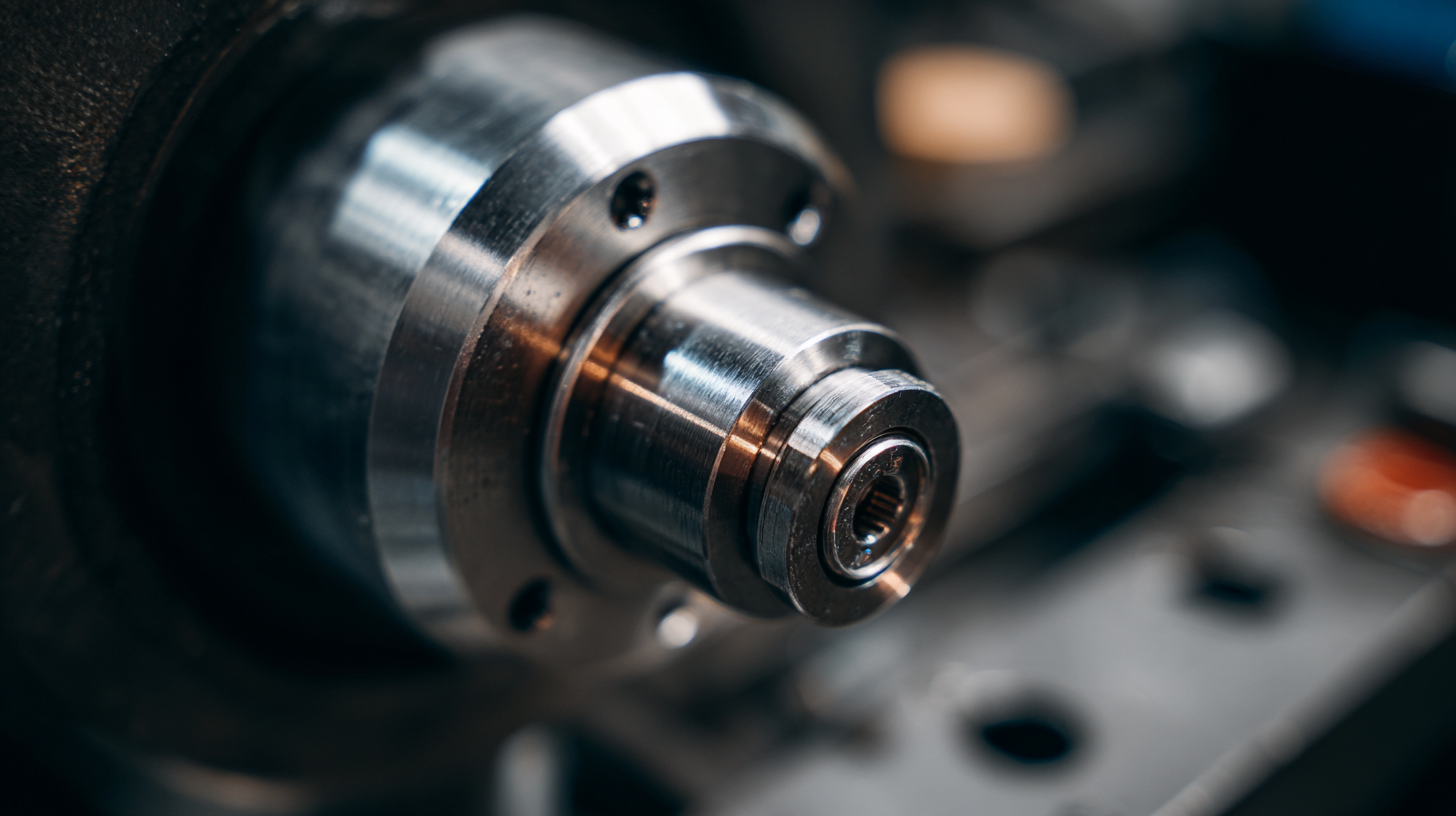Choosing the right Cartridge Nut for your industrial applications is crucial for ensuring optimal performance and longevity of your machinery. In a world where precision and reliability dictate the success of engineering projects, understanding the various types of Cartridge Nuts available and their specific functions can save time and money. This checklist will guide you through the essential factors to consider when selecting a Cartridge Nut, from material composition and thread standards to load-bearing capacities and compatibility with other components. By taking a methodical approach to your selection process, you can minimize the risk of equipment failure and maximize efficiency in your operations. Whether you are upgrading existing hardware or embarking on a new project, having a clear understanding of what to look for in a Cartridge Nut will empower you to make informed decisions that align with your industry needs.

Cartridge nuts are essential components in various industrial applications, serving a crucial role in providing secure fastening and efficient assembly. Understanding the functionality of different cartridge nuts is imperative for selecting the right option for your specific needs. Primarily, these nuts come in various designs, each tailored to address different mechanical requirements. For instance, some cartridge nuts are specifically engineered to distribute loads evenly, while others are tailored for resistance against vibration and loosening, making them suitable for high-speed machinery.
In addition to their load-bearing capabilities, cartridge nuts are designed with specific materials and coatings that enhance their performance in industrial settings. Stainless steel and brass cartridge nuts, for example, offer superior corrosion resistance, making them ideal for environments where moisture or chemicals are present. Moreover, the choice of threading—fine or coarse—can significantly affect the nut’s performance, influencing aspects like torque tolerance and installation ease. By comprehensively evaluating these factors, industries can make informed decisions to optimize both functionality and longevity in their applications.

When selecting cartridge nuts for industrial applications, it’s crucial to evaluate their key features to ensure optimal performance. A primary factor to consider is the material composition; high-strength materials such as alloys or hardened steels can significantly enhance durability and resistance to wear. According to industry reports, cartridge nuts made from high-grade materials can exhibit a service life increase of up to 30% compared to standard options, thus reducing replacement frequency and downtime.
Another essential aspect is the thread size and pitch compatibility with existing equipment. Standardizing thread configurations across machinery not only simplifies maintenance but also enhances overall system efficiency. It has been observed that mismatched threads can lead to a staggering 50% increase in assembly time, which highlights the importance of meticulous selection. Furthermore, assessing the load capacity is vital; opting for cartridge nuts designed to handle higher loads can prevent failure in demanding applications.
Lastly, ease of assembly and disassembly cannot be overlooked. Features such as self-locking mechanisms and integrated sealing can significantly reduce installation time and improve reliability in various environments. Choosing cartridge nuts with these advanced features can elevate operational efficiency, aligning with industry advancements in productivity and safety standards.
When selecting the ideal cartridge nut for industrial applications, material considerations play a crucial role in ensuring durability and longevity. Different materials offer various benefits, making it essential to understand the specific requirements of your application. For instance, stainless steel is a popular choice due to its corrosion resistance and strength, making it well-suited for environments exposed to moisture or chemicals. On the other hand, brass provides excellent antimicrobial properties and is favored in applications where hygiene is paramount.
Additionally, some industries may benefit from using polymer-based cartridge nuts, which can provide lightweight options without sacrificing performance. These materials are often resistant to a range of chemicals and are less likely to corrode or degrade over time. When choosing the right cartridge nut, evaluate factors such as the environmental conditions, load requirements, and compatibility with other materials being used. By focusing on material considerations, you can ensure that you select a cartridge nut that meets the demands of your industrial application while optimizing performance and extending its service life.
When choosing a cartridge nut for industrial applications, understanding the balance between cost and performance is crucial. A recent report by the Industrial Fasteners Institute indicates that the total cost of ownership (TCO) for cartridge nuts can be up to 30% more than the initial purchase price if performance is not considered. For instance, low-quality nuts may fail prematurely, leading to costly downtime—a critical factor in industries where machinery operates continuously.
Moreover, performance metrics such as load capacity, fatigue resistance, and environmental tolerance cannot be overlooked. According to a study published in the Journal of Manufacturing Science and Engineering, high-performance cartridge nuts can withstand greater loads and resist wear up to 25% longer than their lower-cost counterparts. Investing in a quality cartridge nut not only enhances operational efficiency but also aligns with long-term financial objectives by reducing maintenance costs and prolonging machinery lifespan. Therefore, while budget constraints are important, the overall value derived from investing in the right cartridge nut can significantly outweigh initial savings.

When selecting the best cartridge nut for your industrial applications, it's crucial to consider both performance and durability. Various brands and models provide unique features tailored to specific needs, whether for heavy-duty machinery or precision tools. Many top brands are known for their innovative designs and robust construction, ensuring that they can withstand intense operational conditions without compromising efficiency.
Our expert recommendations highlight a curated selection of cartridge nuts that excel in both budget and premium categories. Each model has been thoroughly tested in real-world industrial settings, allowing for reliable performance evaluation. Some options stand out for their exceptional ease of installation, while others shine in terms of compatibility with various industrial systems. By focusing on reputable brands that prioritize quality and user feedback, you can confidently choose a cartridge nut that supports your operational success while maximizing productivity in your work environment.
| Application | Material | Thread Size | Load Capacity (lbs) | Temperature Rating (°F) | Lubrication Type |
|---|---|---|---|---|---|
| Hydraulic Systems | Steel | 1/2"-20 | 2000 | 250 | Grease |
| Pneumatic Equipment | Aluminum | 3/8"-24 | 1500 | 300 | Oil |
| Food Processing | Stainless Steel | M10x1.5 | 1000 | 180 | Food Grade Grease |
| Automotive | Brass | 1/4"-28 | 500 | 200 | Oil |
